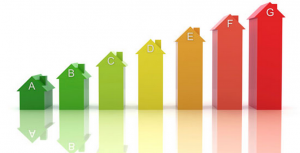NEW REGISTRY HOLIDAY HOMES ANDALUSIA

A new decree (28/2012, of 2nd of February) about homes for tourist purposes in Andalusia, will enter into force on 12 May 2016. The aim of this decree is to regulate the large market of homes belonging to individuals and let by them as a holiday accommodation at different periods throughout the year.
These lettings, by days or weeks, as well as the use and terms of the lease, were not regulated until now. Therefore, the purpose of this Decree is to ensure that these homes meet a series of minimum requirements to be let, establishing the rights and obligations of both owners and customers and requiring the registration of the homes.
Clearly, this Decree has a significant impact in Andalusia, especially in Costa del Sol and Axarquía, for touristic cities like Granada, Malaga, Seville, and municipalities such as Nerja, Malaga, Torrox, Fuengirola, Marbella, Mijas, etc., which have many homes used for rentals of this type.
What is a home for tourist purposes?
These are homes located on residential land, offered in exchange for a price for the accommodation of people on a regular basis and with tourist purposes. Homes are understood to be let on a regular basis for tourist purposes if they are marketed or promoted in a tourist marketing channel. E.g.: Airbnb, Tripadvisor, Windu, property agencies, etc.
If you are the owner of a home on residential land in Andalusia and, during the year, you offer it for letting for days or weeks, this home will have tourist purposes. Therefore you must comply with the regulations of this Decree if you wish to continue to engage in this activity legally.
Which homes are excluded from this regulation?
Rural homes (houses in the country side) offered for holiday letting are not regulated by this decree. However, they do have the obligation of registering as a tourist home in the rural environment (Vivienda de Turismo en el Medio Rural). Therefore the owners of these homes must also register them before the Government of Andalusia but under a different regulation.
Homes let by the same person for two consecutive months or longer are not considered holiday homes and, therefore, do not need to register. This refers to homes let under a lease agreement for a period exceeding 2 months.
If, during the year, you let your home for over 2 months but you also let it for days or weeks, you will have to register it. Lettings exceeding 2 months and lettings for days or weeks are compatible in the same home.
An exemption to the application of this Decree is established when a single person has 3 or more homes for holiday lettings, within a radius of approximately 1 km. In this case, this Decree will not be applicable and regulations on tourist apartments will apply.
What does this Decree entail?
The obligation to register any home on urban land that the owner whishes to use for holiday letting before the Registry of Tourism in Andalusia. Once the home is registered, a registration number will be issued that must be displayed when offered for letting. The home only needs to be registered once and the registration number can be used for subsequent letting. The owner is the one legally responsible for registering the home and this home can´t be used for holiday letting unless it is registered before the Government of Andalusia by 12 May this year.
What are the registration requirements?
- The home must be on residential (urban) land.
- It must have a Licence of First Occupation. If it does not have the initial occupation permit, a certificate from the City Hall showing the location and use of the home should be accepted, but we are waiting for the written confirmation of the Junta of Andalusia.
- Depending on the season, all accomadations need to be equipped with cooling and heating. In this case, the period for the owner lacking these installations is extended until 12 May 2017 and the property may be let during that period.
- The home must have the essential furniture and furnishings required for the total amount of persons it is rented out to.
- A first-aid kit is required.
- It must have tourist information about the area, showing places to visit, restaurants, etc. A small tourist guide or advertisement from the corresponding tourist office can help you meet this requirement.
- It must have complaint and claim forms available to customers in a visible place.
- The home must be cleaned upon the check-in of new customers.
- Linen and tableware appropriate for the number of people.
- Contact telephone number to handle problems and emergencies.
- Information and instructions about the appliances/equipment in the home must be available in a specific place.
- Information must be provided about internal rules for the use of facilities, according to the regulations of the Residents’ Association (community rules).
- The maximum amount of people allowed in the property is 15.
- In case you are renting out a room, instead of the entire house, the maximum amount of people allowed per room is 4.
- All bedrooms must have external ventilation through windows.
What are the obligations for each customer?
A contract document must be signed by all parties, showing the details of the property, the owner, the number of days of stay and the price of accommodation, as well as the identification of people with a copy of their passports or residence cards. We are talking about a simple document of just 1 or 2 sheets, that the owner must keep for a period of 1 year.
Likewise, the owner must notify the Guardia Civil (police) of the occupation of the home with each new customer. The owner must provide a copy of the contract and the passports/identity cards of occupants.
What happens if I don’t register my home in this registry?
Inspection services may review the situation and begin penalty proceedings. Be careful, because the fine may range from 2,000 to 18,000 Euros.
Furthermore, you have the obligation to allow inspectors to enter the home when they visit it to verify that it meets the requirements for letting. If you do not allow inspectors to enter the home, you could be fined for very serious misconduct, with a large penalty.
What else does this Decree regulate?
Among other things, it regulates the rights of customers in cases where there is a conflict with the owner regarding the price of the letting, check-in and check-out times, advance payments or deposits for letting, etc. Ultimately, it regulates the terms for prices, booking, advance payments and cancellation, unless otherwise agreed in writing between the parties.
Taxes on income received
This registry is of an administrative nature, dependent on the Government of Andalusia and created to regulate the conditions of holiday lettings. It has nothing to do with the obligation to pay taxes on rental income. Likewise, if your home is registered in this Registry but you do not rent it out, it will have no cost to you.
The payment received for letting a home -either for holidays or long-term (longer than 2 months)- must be declared before the Tax Agency, which depends on the Central Government. The income tax you pay depends on the fact wheter you are a fiscal tax-resident in Spain (IRPF tax) of not (IRNR tax).
Legal advice
Even though the Decree will enter into force on 12 May, it is already possible to start the process to register homes in this Registry. If you have one or several properties being let as holiday homes you must register them before the Government of Andalusia. We can take care of processing the documents you need to register your home. We can also inform you about all the requirements that your home must meet and your obligations as its owner. Don’t hesitate to contact us at 0034 – 952 532 582 or info@cdsolicitors.com
Author: Gustavo Calero Monereo, C&D Solicitors (lawyers)
Torrox-Costa (Malaga/Costa del Sol/Nerja/Andalucia)


















